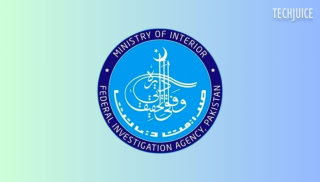It’s a dream of professionals and students alike to study at MIT. The institution is a hub of research and innovation and one of the top universities of the world. It needs no introduction and is an institution where many dream to study one day.
Assuming you are reading this article, you also aspire to learn one day at MIT. Fadel Adib, who is an Assoc. Professor at MIT has been on the graduate admissions committee for the last 5 years and in a Twitter thread, he shared his findings regarding what you need to make the cut for the MIT admission. Let’s go through the thread by first analyzing the core requirements:
1. Grades do matter, especially in courses that are important for your chosen field
2. Research matters, even more than grades
3. Publications matter, but letters of recommendation matter even more
4. Your statement of purpose should be the cherry on top of the cake
2/13
— Fadel Adib (@fadeladib) January 23, 2021
Starting off, you need to ensure that you have great grades in the subjects you are interested in studying further as a core field. Research and publications will show how much grip you have on the subject and recommendation letters will show how well you work with professors and in a team. Statement of Purpose is of course the cherry on top of the cake.
But, something worth noting about grades!
When I say grades matter, it doesn't mean that you need 100/100 or A+ in every course. It does mean that you are expected to have strong competence (close to straight A/A+/A-) in technical courses relevant to your field of interest
3/13
— Fadel Adib (@fadeladib) January 23, 2021
Quality of research matters a lot in PhD admissions:
While grades show competence, a PhD is about research. So, the more your application demonstrates research potential, the higher your chances for acceptance. It's not about the number of papers (if any), but about the quality of research you pursue
4/13
— Fadel Adib (@fadeladib) January 23, 2021
Therefore your research potential is evaluated heavily based on the letter of recommendations received.
This is why the best evaluation of research potential often comes from letters of recommendation (LoRs)
Letters shed light on technical competence, creativity, work ethic, & personal interaction. All of which are important for a successful PhD
5/13
— Fadel Adib (@fadeladib) January 23, 2021
Now, who should write the letter of recommendation?
How to choose your letter writers?
The best LoRs I've seen usually come from a faculty/research who publishes in highly selective venues
If you are in CS, you can use https://t.co/VB8Wh9MKKR to see what are considered the most selective CS venues (ignore rankings for now)
6/13
— Fadel Adib (@fadeladib) January 23, 2021
Letter of recommendations from industry professionals seldom help:
What about other LoRs? I would argue you need at least 1 from a research supervisor. Letters from industry internships seldom help (unless it's publishable research). You're better off getting a letter from a professor who taught you a relevant *technical* course you Aced
7/13
— Fadel Adib (@fadeladib) January 23, 2021
So how should you craft your statement of purpose?
A great statement of purpose (1) shows clarity and depth of thought and (2) demonstrates alignment between your background and the PhD research you want to pursue. This is why it should be the cherry on top of the cake
8/13
— Fadel Adib (@fadeladib) January 23, 2021
It should highlight:
SoP should highlight:
1- Area of interest (& possibly profs you want to work with)
2- Briefly: your academics (grades,honors,projects)
3- Your prior and ongoing research projects. For each proj, talk about motivation, your role & contribution, & outcome/status9/13
— Fadel Adib (@fadeladib) January 23, 2021
Here is how the final cutoff happens, when you aren’t sure about your research:
What if you're not exactly sure of what your area of interest? Or if your prior research is not aligned with it?
If I'm being honest, this is where the final cutoff usually happens at very selective schools. There are three ways around it
10/13
— Fadel Adib (@fadeladib) January 23, 2021
Here’s how you can navigate around this problem:
1- If the application deadline is 3 months away, thoroughly read papers recently published in an area of interest
2- If you have more time, try your best to do research in that area
3- Do a Masters firstThese can help you clarify your own purpose for pursuing research
11/13
— Fadel Adib (@fadeladib) January 23, 2021
Now, what about GRE and TOEFL scores?
What about GRE and TOEFL? I never personally looked at them. Anything they would tell about communication or technical skills should come out in the LoRs and SoP
12/13
— Fadel Adib (@fadeladib) January 23, 2021
And finally, if you don’t make the cut, don’t sweat it because these decisions are really hard as the professor notes in conclusion:
Final thought: Admission decisions are hard because there are many amazingly qualified applicants. The process also varies quite a bit across schools. If you're an aspiring PhD, I hope this thread can help you help us admit you!
13/13
— Fadel Adib (@fadeladib) January 23, 2021
Which one of these tips did you find most helpful?












